FREEDOM LIVES … BUT AT WHAT PRICE?
Blessed is the nation whose God is the Lord. Psalm 33:12
 I catch a glimpse of red, white, and blue outside my door, waving briskly in the morning breeze, the thirteen stripes representing the original thirteen colonies that became these United States and fifty stars, one for each of our modern-day states. It’s really a pretty unique flag when you think about it. The design connects the old with the new. Those original thirteen colonies desired freedom from the controlling nation that existed across an ocean of water. During a time when ocean travel was the only route from England to the American colonies, communication was difficult because of constant delays. Americans wanted to be free from the encumbrance of regulations and taxes laid down by that foreign power. And so they fought and freedom was eventually won but at a great price. Many died in that quest and more were gravely injured, but they counted it a worthwhile struggle because the end result was a new nation, a grand experiment in an idea called democracy.
I catch a glimpse of red, white, and blue outside my door, waving briskly in the morning breeze, the thirteen stripes representing the original thirteen colonies that became these United States and fifty stars, one for each of our modern-day states. It’s really a pretty unique flag when you think about it. The design connects the old with the new. Those original thirteen colonies desired freedom from the controlling nation that existed across an ocean of water. During a time when ocean travel was the only route from England to the American colonies, communication was difficult because of constant delays. Americans wanted to be free from the encumbrance of regulations and taxes laid down by that foreign power. And so they fought and freedom was eventually won but at a great price. Many died in that quest and more were gravely injured, but they counted it a worthwhile struggle because the end result was a new nation, a grand experiment in an idea called democracy.
It is Memorial Day, or the one our government has declared in order to guarantee a three-day weekend for all to enjoy. The actual Memorial Day is tomorrow, May 31, and by the time the Gatepost is released, it will be the day after. But does it really matter? Should we celebrate our freedom and honor those who gave their lives to achieve it for only one short day a year. And I wonder how many people take the time from all the exciting holiday activities to think about what they’re celebrating. How many don’t even know the story? Since that first great struggle for freedom here in the United States, there have been many others, at home and on foreign soil. Men and women have continually stepped up to fight for the freedom of others and countless souls have been lost to battle. We’ve all heard the slogan, “Freedom is not free,” but how often do we really examine those words?
Service is the rent we pay for being. It is the very purpose of life, and not something you do in your spare time. Marion Wright Edelman

And how many have never heard another story of freedom achieved at an unimaginable price? We take our national freedoms for granted while other peoples in other nations live in deplorable conditions, often under the rule of corrupt governments.
Have they ever heard that long ago a Child was born, He grew into a man and walked the limited area near His birth, teaching and healing and listening to all those He encountered. After only a short lifetime, He died on a cross to offer freedom to each of us. We have the freedom to follow Him and continue His work throughout our world or to turn away and live our lives without the blessing and peace of His company.
Now the Lord is the Spirit, and where the spirit of the Lord is, there is freedom. II Corinthians 3:17
Just as soldiers have sacrificed and died on battlefields throughout the history of earth, Jesus gave His earthly life to buy our freedom. It is up to us to remember “whose we are” and to make that free choice to follow Him.
It is for us to make the effort; the result is always in God’s hands. Mahatma Gandhi
One of our most basic freedoms is the ability to worship in the way we choose. As Christians, we spend time reading and studying, gathering together to sing and pray. But the worship service and our Bible studies are just the beginning. They are our training ground, our “boot camp” so to speak. They supply the tools we need to carry out our mission. As our modern world seems to be spinning out of control, where oppressors wish to subjugate others, where light seems to be overcome with darkness, it is our responsibility to shine the light and love of Jesus in every dark corner. We must trust that through Him even the most mean-spirited of minds can be changed. It’s time to take a stand. Will we stand for freedom and light in Christ or will we allow darkness and oppression to reign?

We really can make a difference to the world around us. It will be risky but remember, Christ is within us. You will never out-dream God. He will give you resources according to your aspirations. He will lead, protect, bless, and encourage you. Maybe it starts today. Bear Grylls, Soul Fuel
Memorial Day may be folded up like our flag and put away for another time, but we needn’t forget its significance. We can honor those who’ve gone before us by picking up their banner. There is much work to be done, people of God, so let’s put on our armor and get to it! Together, let’s make the most of our freedom!


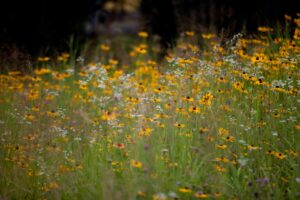 Wildflowers are tough. They root in unlikely, often hostile environments, yet they manage to grow and bloom.
Wildflowers are tough. They root in unlikely, often hostile environments, yet they manage to grow and bloom.


 swings. The pitcher leans in toward the catcher to pick up the signaled pitch and everyone in the stadium feels the electricity in the air. The first pitch is a fastball, right over the plate. The umpire calls a strike. Next comes a ball followed by a foul tip. Two more pitches fly a little outside the strike zone and the count is 3-2. The pitcher takes his time, the catcher changes the call at the last moment. The ball is released the batter swings. “Strike three, you’re out!” The dreaded curveball. It looked so perfect flying toward the plate, headed right for the strike zone, but then it curved to the outside and caught the batter swinging hard.
swings. The pitcher leans in toward the catcher to pick up the signaled pitch and everyone in the stadium feels the electricity in the air. The first pitch is a fastball, right over the plate. The umpire calls a strike. Next comes a ball followed by a foul tip. Two more pitches fly a little outside the strike zone and the count is 3-2. The pitcher takes his time, the catcher changes the call at the last moment. The ball is released the batter swings. “Strike three, you’re out!” The dreaded curveball. It looked so perfect flying toward the plate, headed right for the strike zone, but then it curved to the outside and caught the batter swinging hard. Quinn is pretty talented. He excels in three positions, shortstop, catcher, and pitcher. He understands the relationship between pitching and catching from both sides of the plate, the psychology of calling plays, and he knows what’s happening on the field at all times. He is blessed with another strength as well, he’s a solid hitter. I’m sure that comes from so many hours spent in the pitching and catching positions. He studies the opposing batters well and has an innate sense of when it’s time to throw a curveball. The nature of the pitch is to throw the batter off, make him go for a pitch that, for all the world looks like a perfect pitch to hit, but dips at the last second when the swing has already started and can’t be held back. Maybe he’ll strike out or maybe he’ll connect with the ball but foul off to one side or the other. It doesn’t matter as long as the contact doesn’t produce a fair hit. And the beauty of the curveball is that all the batters will be wondering what’s coming next.
Quinn is pretty talented. He excels in three positions, shortstop, catcher, and pitcher. He understands the relationship between pitching and catching from both sides of the plate, the psychology of calling plays, and he knows what’s happening on the field at all times. He is blessed with another strength as well, he’s a solid hitter. I’m sure that comes from so many hours spent in the pitching and catching positions. He studies the opposing batters well and has an innate sense of when it’s time to throw a curveball. The nature of the pitch is to throw the batter off, make him go for a pitch that, for all the world looks like a perfect pitch to hit, but dips at the last second when the swing has already started and can’t be held back. Maybe he’ll strike out or maybe he’ll connect with the ball but foul off to one side or the other. It doesn’t matter as long as the contact doesn’t produce a fair hit. And the beauty of the curveball is that all the batters will be wondering what’s coming next.


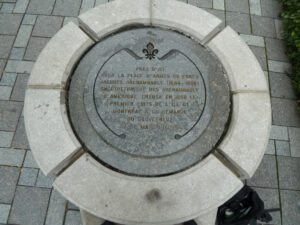 from his mother. He made an amazing discovery on one of his searches. His ninth great-grandfather, Jacques Archambault along with his family, migrated to Canada from France around 1645. Jacques had made a decent living as a wine-maker in France but seems to have made a hasty exit from his home, possibly to avoid religious persecution. In so doing, he became deeply indebted to the owner of the ship on which his family made passage and so he worked off his debt while living on the ship owner’s property. About the time he repaid his debt, colonists were needed to develop a nearby village, so Jacques moved his family there using funds provided by the governor with an assumed agreement that he would dig a community well for the new town. Jacques was known as a dowser, someone who believed he could locate underground water with the use of a forked stick or two separate sticks. In 1658 he reached an agreement as to the scope of the project and began his work. Completion of the well established his reputation in this new world and he was commissioned to dig more wells, but that first one is marked to this day, in the modern city of Montreal, with a plaque commending Jacques Archambault for his achievement. Ken was pretty excited to learn of this ancestor. (An interesting sidebar to this story is that anyone in the United States having an ancestor named Archambault can trace their roots to Jacques for he is the only Archambault who migrated from France to the US.)
from his mother. He made an amazing discovery on one of his searches. His ninth great-grandfather, Jacques Archambault along with his family, migrated to Canada from France around 1645. Jacques had made a decent living as a wine-maker in France but seems to have made a hasty exit from his home, possibly to avoid religious persecution. In so doing, he became deeply indebted to the owner of the ship on which his family made passage and so he worked off his debt while living on the ship owner’s property. About the time he repaid his debt, colonists were needed to develop a nearby village, so Jacques moved his family there using funds provided by the governor with an assumed agreement that he would dig a community well for the new town. Jacques was known as a dowser, someone who believed he could locate underground water with the use of a forked stick or two separate sticks. In 1658 he reached an agreement as to the scope of the project and began his work. Completion of the well established his reputation in this new world and he was commissioned to dig more wells, but that first one is marked to this day, in the modern city of Montreal, with a plaque commending Jacques Archambault for his achievement. Ken was pretty excited to learn of this ancestor. (An interesting sidebar to this story is that anyone in the United States having an ancestor named Archambault can trace their roots to Jacques for he is the only Archambault who migrated from France to the US.) The one common thread between all living things whether plant, animal, or human is the need for water to sustain life. Even people who have no source of clear, freshwater know that their bodies require hydration, so whatever the condition of their available water, they will drink. Without it, everything would wither and die, so it only follows that people in search of a new place to settle would have chosen to build homes and businesses near streams and natural springs where water was abundant. But population growth forced the development of land farther away from natural water sources and wells were dug to tap underground aqueducts and bring the necessary life-giving water to the surface. The Jezreel Valley of northern Israel is documented to have been the home of the first permanent water wells dug for human use. They date back to around 6500 BC.
The one common thread between all living things whether plant, animal, or human is the need for water to sustain life. Even people who have no source of clear, freshwater know that their bodies require hydration, so whatever the condition of their available water, they will drink. Without it, everything would wither and die, so it only follows that people in search of a new place to settle would have chosen to build homes and businesses near streams and natural springs where water was abundant. But population growth forced the development of land farther away from natural water sources and wells were dug to tap underground aqueducts and bring the necessary life-giving water to the surface. The Jezreel Valley of northern Israel is documented to have been the home of the first permanent water wells dug for human use. They date back to around 6500 BC.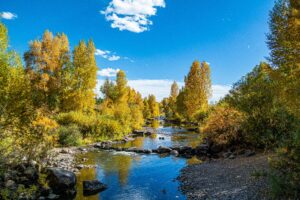 homes, and keep countless types of machinery, as well as technology, working throughout our nation. But even here, as more people migrated westward, wells became necessary to provide sufficient water.
homes, and keep countless types of machinery, as well as technology, working throughout our nation. But even here, as more people migrated westward, wells became necessary to provide sufficient water.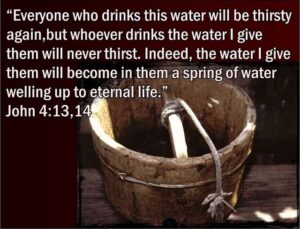 Jesus answered, “Everyone who drinks this water will be thirsty again, but whoever drinks from the water that I will give will never be thirsty again. The water that I give will become in those who drink it a spring of water that bubbles up into eternal life.” John 4:13-14
Jesus answered, “Everyone who drinks this water will be thirsty again, but whoever drinks from the water that I will give will never be thirsty again. The water that I give will become in those who drink it a spring of water that bubbles up into eternal life.” John 4:13-14 
 It’s an incredible spring day in the Ozarks and we decide it’s perfect weather for a hike, not too cool but not too warm yet. We grab a daypack, add some sandwiches and extra water, a hat and sunscreen, a compass, and maybe an extra pair of socks in case we slip in a still very cool stream. Wet socks develop painful blisters. We head for a trail we hiked many years ago, a pair of adventurers hoping to enjoy some great views, catch a glimpse of wildlife here and there, but not too wild, and get some nice shots of “wild” flowers just showing their pretty faces. Oh yes, there is also a waterfall at the halfway point and it should be running nicely due to a wet spring.
It’s an incredible spring day in the Ozarks and we decide it’s perfect weather for a hike, not too cool but not too warm yet. We grab a daypack, add some sandwiches and extra water, a hat and sunscreen, a compass, and maybe an extra pair of socks in case we slip in a still very cool stream. Wet socks develop painful blisters. We head for a trail we hiked many years ago, a pair of adventurers hoping to enjoy some great views, catch a glimpse of wildlife here and there, but not too wild, and get some nice shots of “wild” flowers just showing their pretty faces. Oh yes, there is also a waterfall at the halfway point and it should be running nicely due to a wet spring.

 Oh, and that waterfall we were searching for. We began to hear it just a few twists and turns from that point where we doubted our directional skills. It certainly measured up to our hopes. Water cascaded with reckless abandon over a succession of falls leaving us breathless. And for Ken, it was rather breathtaking when he slipped on a moss-covered rock and nearly fell over the falls while straining to get his best photograph. With a prayer of gratitude that Ken was able to proceed and a leisurely lunch with our feet in the cool clear water above the falls (the temperature reached 80+ on our perfect spring day), we reluctantly decided it was time to head on down the trail. The second half was much better marked but no less tricky, and after about five hours, we arrived back at the trailhead, very tired and sporting a few new bruises. While satisfied that we’d been able to make the trip, we learned something about our physical limitations and will stick to less strenuous trails in the future. And we’ll remember to double-check our supplies and to coordinate all our adventures with the one who steadfastly watches over us and provides excellent directions.
Oh, and that waterfall we were searching for. We began to hear it just a few twists and turns from that point where we doubted our directional skills. It certainly measured up to our hopes. Water cascaded with reckless abandon over a succession of falls leaving us breathless. And for Ken, it was rather breathtaking when he slipped on a moss-covered rock and nearly fell over the falls while straining to get his best photograph. With a prayer of gratitude that Ken was able to proceed and a leisurely lunch with our feet in the cool clear water above the falls (the temperature reached 80+ on our perfect spring day), we reluctantly decided it was time to head on down the trail. The second half was much better marked but no less tricky, and after about five hours, we arrived back at the trailhead, very tired and sporting a few new bruises. While satisfied that we’d been able to make the trip, we learned something about our physical limitations and will stick to less strenuous trails in the future. And we’ll remember to double-check our supplies and to coordinate all our adventures with the one who steadfastly watches over us and provides excellent directions.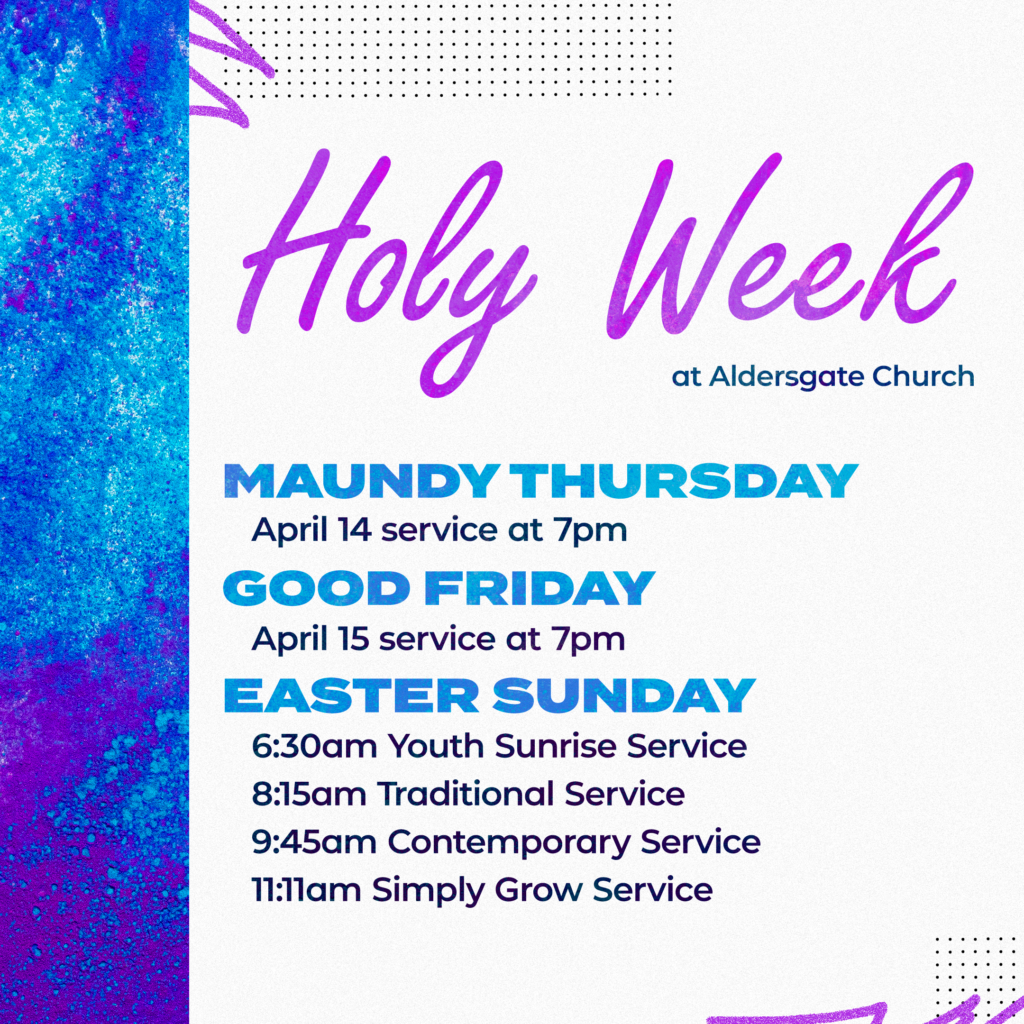
 The air feels almost electric with the excitement of the hour! The invocation has been offered, the national anthem sung and the pilots of the day have thrilled the audience with their low altitude flyover. A hush falls over the crowd as an invited guest steps to the microphone and shouts, “Drivers, start your engines.” Some forty race cars roar to life and line up in their predetermined order. The pace car leads them around the track, then slides off to the infield. The flagman leans over the start line at the ready. As the first car passes, he waves the green flag and they’re off, ready to spend several hours just to see who can claim today’s trophy.
The air feels almost electric with the excitement of the hour! The invocation has been offered, the national anthem sung and the pilots of the day have thrilled the audience with their low altitude flyover. A hush falls over the crowd as an invited guest steps to the microphone and shouts, “Drivers, start your engines.” Some forty race cars roar to life and line up in their predetermined order. The pace car leads them around the track, then slides off to the infield. The flagman leans over the start line at the ready. As the first car passes, he waves the green flag and they’re off, ready to spend several hours just to see who can claim today’s trophy.
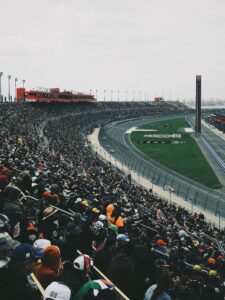

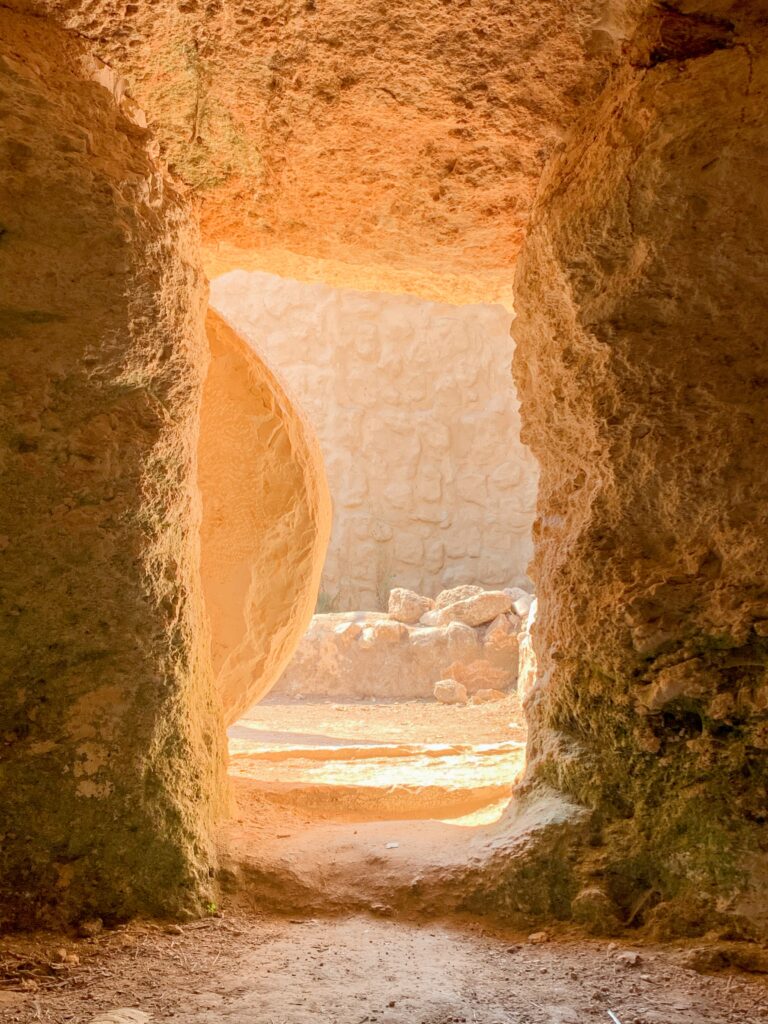
 What shall I render to the Lord for all His bounty to me. Psalm 116:12
What shall I render to the Lord for all His bounty to me. Psalm 116:12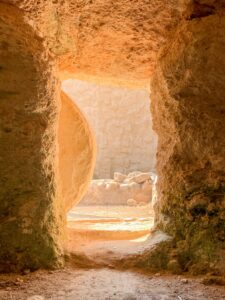
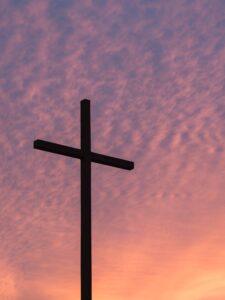 But here’s the good news. He forgives! Alleluia!
But here’s the good news. He forgives! Alleluia!
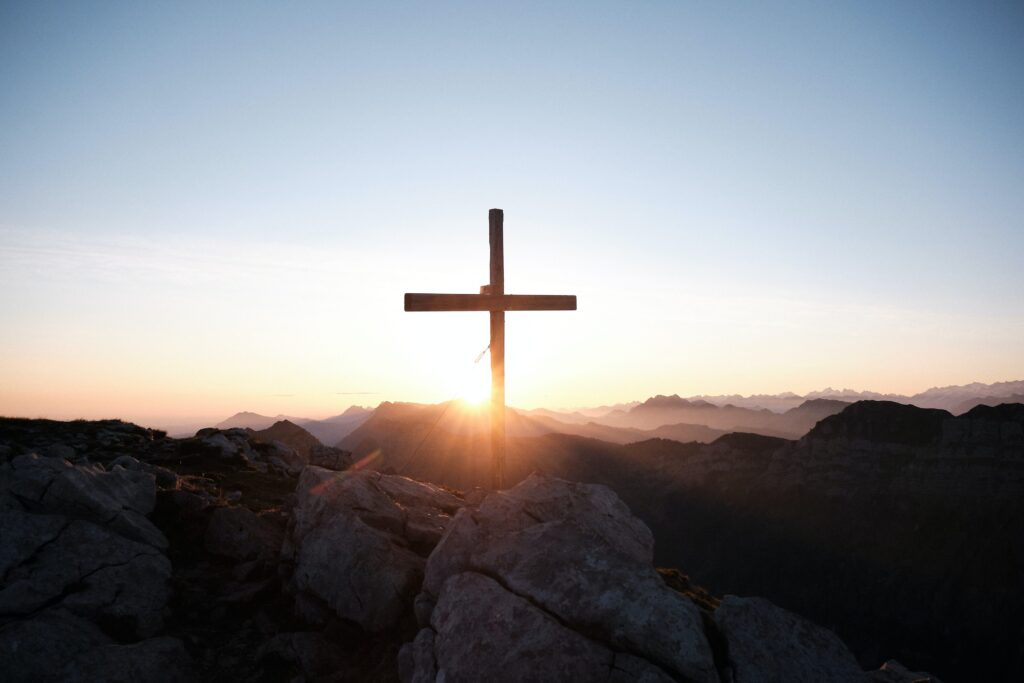

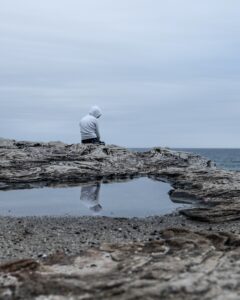 I put all my hope in the Lord. He leaned down to me; he listened to my cry for help. He lifted me out of the pit of death, out of the mud and filth, and set my feet on solid rock. He steadied my legs. Psalm 40:1-2
I put all my hope in the Lord. He leaned down to me; he listened to my cry for help. He lifted me out of the pit of death, out of the mud and filth, and set my feet on solid rock. He steadied my legs. Psalm 40:1-2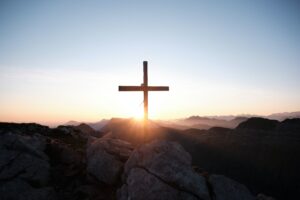

 That house next door has been sitting vacant for a few months now. Real estate agents have shown it a number of times to prospective buyers but no sale has happened to date. Lots of questions come to mind when we find ourselves wondering who the next homeowner will be or if the current owner will eventually give up trying to sell and decide to rent the home instead. When a car parks in the driveway, it’s natural to peer out the window to see who might be looking. Is it a young family with active children or empty nesters just getting started on the next phase of life’s journey? Perhaps it’s a retired couple wanting to just enjoy those “golden years.” Maybe it’s a single parent with a whole passel of kids. Are there any pets waiting impatiently in the car? And here’s one for you….is it someone with long hair, a scruffy beard and a flowing robe with sandals on his feet? No, I’m not talking about a 1970s hippie. I’m asking what you’d think if you saw Jesus, the Son of God, looking at that house next door? What thoughts would rush to your mind if you learned that He just might be your new neighbor?
That house next door has been sitting vacant for a few months now. Real estate agents have shown it a number of times to prospective buyers but no sale has happened to date. Lots of questions come to mind when we find ourselves wondering who the next homeowner will be or if the current owner will eventually give up trying to sell and decide to rent the home instead. When a car parks in the driveway, it’s natural to peer out the window to see who might be looking. Is it a young family with active children or empty nesters just getting started on the next phase of life’s journey? Perhaps it’s a retired couple wanting to just enjoy those “golden years.” Maybe it’s a single parent with a whole passel of kids. Are there any pets waiting impatiently in the car? And here’s one for you….is it someone with long hair, a scruffy beard and a flowing robe with sandals on his feet? No, I’m not talking about a 1970s hippie. I’m asking what you’d think if you saw Jesus, the Son of God, looking at that house next door? What thoughts would rush to your mind if you learned that He just might be your new neighbor?
 Next week is Holy Week. On Sunday, we’ll celebrate Jesus’ triumphal entry to Jerusalem. In the early part of the week, we’ll see Him chasing out money-changers from the temple and being questioned by religious leaders. On Thursday, we’ll observe The Last Supper, setting the stage for all that is to follow. On Friday, the dark hours of betrayal, torture, and crucifixion will consume our thoughts. No one knew then what was to come on Sunday, but we do. He tried to tell His closest friends and followers but they didn’t understand. We have the benefit of hindsight, but the question remains; will we live our days responding to the cultural noise and chaos surrounding us or will we welcome into our neighborhood and our hearts the One whose promises have true meaning? Will we recall the words of our praise band last Sunday as they sang; “Your love is so much sweeter than anything I’ve tasted, I want to know your heart.”
Next week is Holy Week. On Sunday, we’ll celebrate Jesus’ triumphal entry to Jerusalem. In the early part of the week, we’ll see Him chasing out money-changers from the temple and being questioned by religious leaders. On Thursday, we’ll observe The Last Supper, setting the stage for all that is to follow. On Friday, the dark hours of betrayal, torture, and crucifixion will consume our thoughts. No one knew then what was to come on Sunday, but we do. He tried to tell His closest friends and followers but they didn’t understand. We have the benefit of hindsight, but the question remains; will we live our days responding to the cultural noise and chaos surrounding us or will we welcome into our neighborhood and our hearts the One whose promises have true meaning? Will we recall the words of our praise band last Sunday as they sang; “Your love is so much sweeter than anything I’ve tasted, I want to know your heart.”